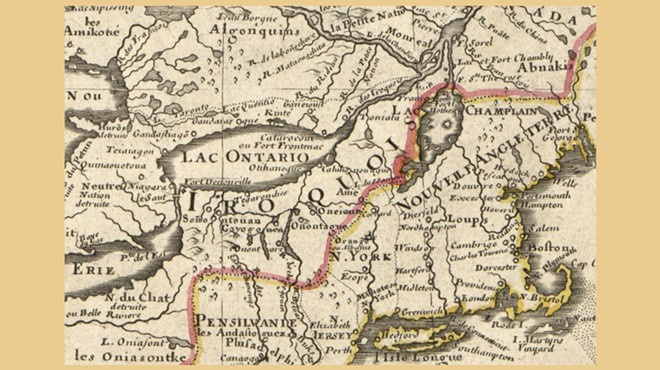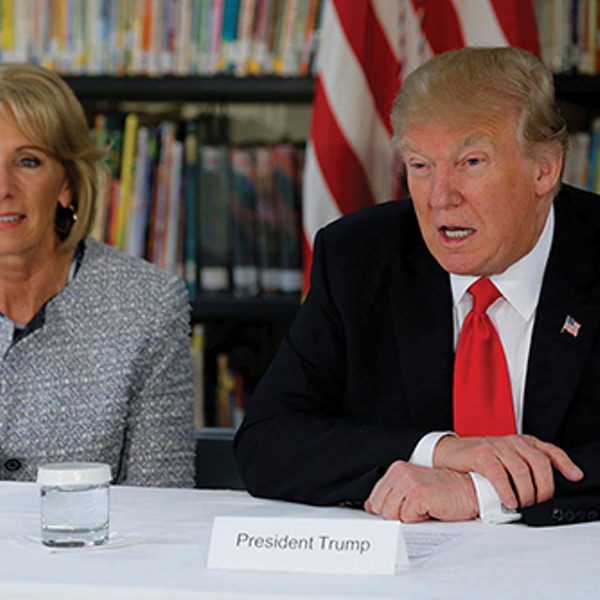Donald Trump's candidacy was supposed to be the greatest gift to comedy since ever. As reliably loony as Michelle Bachman, as certain a punch line as pedophile priests. It was the gift of the comedy gods for Jon Stewart's final weeks. Now, Trump is leader of the pack, the most likely candidate; practically, the only likely candidate.
Then there was Ben Carson. It was extremely hard for someone who was not a Christian conservative in Iowa to figure out why he was polling so well. He has a demeanor on camera that seems as if could only have been created by a liquid valium drip. In that slow, sedated, careful medicated voice, he'd announce that it was gun control that led the Nazis come to power and carry out the Holocaust. Some of his most inspirational personal stories turned out to also have come from those realms where imagination reigns. Yet Carson polled second until just weeks ago.
If Hollywood were to cast an evil weasel politician, he'd look like Ted Cruz. Which is how many of his colleagues, especially Republicans, think of him. Apparently, it's how most people think of him. His college roommate said, "Ted Cruz is a nightmare of a human being." Cruz is now polling in second place and possibly first in Iowa.
Jeb Bush was supposed to be the shoo-in for the nomination. He had $24 million in campaign funds, plus over $100 million in his Super PAC, a record. Yet there he is, stuck in single digits.
Chris Christie, Carly Fiorina, Mike Huckabee, John Kasich, Rand Paul, Lindsey Graham, and George Pataki are all down at the bottom with even fewer single digits.
Marco Rubio was supposed to be a golden boy—young, handsome, dynamic and, as a Latino, able to bring in some of that ethnic vote. He's doing better than the single digit gang, but not good enough. Slate wonders, "Is Marco Rubio a Paper Tiger?" and Daily Beast asks "Was Marco Rubio Overrated All Along?"
Every pundit and commentator and political consultant will spout theories about presence, style, policy positions, the electorate, the mood, the this, the that, and the other. Is there an answer? Is there something that explains it all?
Yes. Truth.
Based on analysis by PolitiFact, the more truthful statements a candidate for the Republican nomination for president makes, the lower their standing will be. The more false statements they make, the better they do.
PolitiFact classifies statements into six categories: True, Mostly True, Half True, Mostly False, False, and Pants on Fire. You can see the list on their website (Politifact.com), in order of the candidates' popularity, with a simple bar graph alongside that conveys the essence at a glance. It is possible to quibble with PolitiFact's standards and with individual judgments. Yet it seems relatively neutral. More important, it's the only quantitative measure of truthiness that we've got. So we'll go with it. And to simplify matters even further, reduce the six categories to two, True to Half True, and Mostly False to Pants on Fire.
Donald Trump had 76 claims analyzed. None were rated True, just 18 made it Mostly True and Half True, while 58 fell into the bottom half. That is, three-quarters of what Trump says was rated false.
Ben Carson had a higher un-truth percentage than Trump, 84 percent. So why didn't he make it to first place? Quantitative. Carson didn't talk as much (or wasn't noticed talking), with the result that he had only 25 statements analyzed, giving Trump three times as many false statements recorded.
PolitiFact rated two-thirds of 68 Ted Cruz utterances as falsies.
Marco Rubio is barely at 40 percent in the falsehood half. So, yes, that's enough to get noticed. But 60 percent of what he says contains some Truth, so he can't get traction.
What Jeb Bush, Chris Christie, John Kasich, Lindsey Graham, and Rand Paul have in common? Weak falsehood ratings. Down around 30 percent. Their statements are True, or have some elements of truth, better than two-thirds of the time. Even that much truthiness—and it's not really a lot—is the kiss of death for a Republican candidate.
Admittedly, Fiorina (52 percent False), Huckabee (51 percent False) and Santorum (56 percent False) seem to be False enough to be doing better, which indicates that although un-truthiness is a determining factor, it is not the sole factor. Santorum has very little money, Huckabee has some, and Fiorina has more, but still not nearly enough to be competitive even with really great distortions and vibrant un-truths.
Is it party specific? Politifact rated Hillary Clinton at 62 percent on the Truth side, Bernie Sanders at 63 percent, and Martin O'Malley at 75 percent (though saying very little). So yes, it's party specific.
Does this tell us something about the candidates? Do liars like to run as Republicans?
There are Republican candidates who are nearly as truthful as Democrats, and as we see, they're dead in the water. So, yes, it's Republican voters. Of course, there are Democrats like that, too, who like some delusion with their politics. But among Democrats it's a minority and among Republicans it appears to be a majority who have a preference for the fallacious. Both may be right to make their selections on such a basis, since, as Stephen Colbert said, facts have a liberal bias.

















